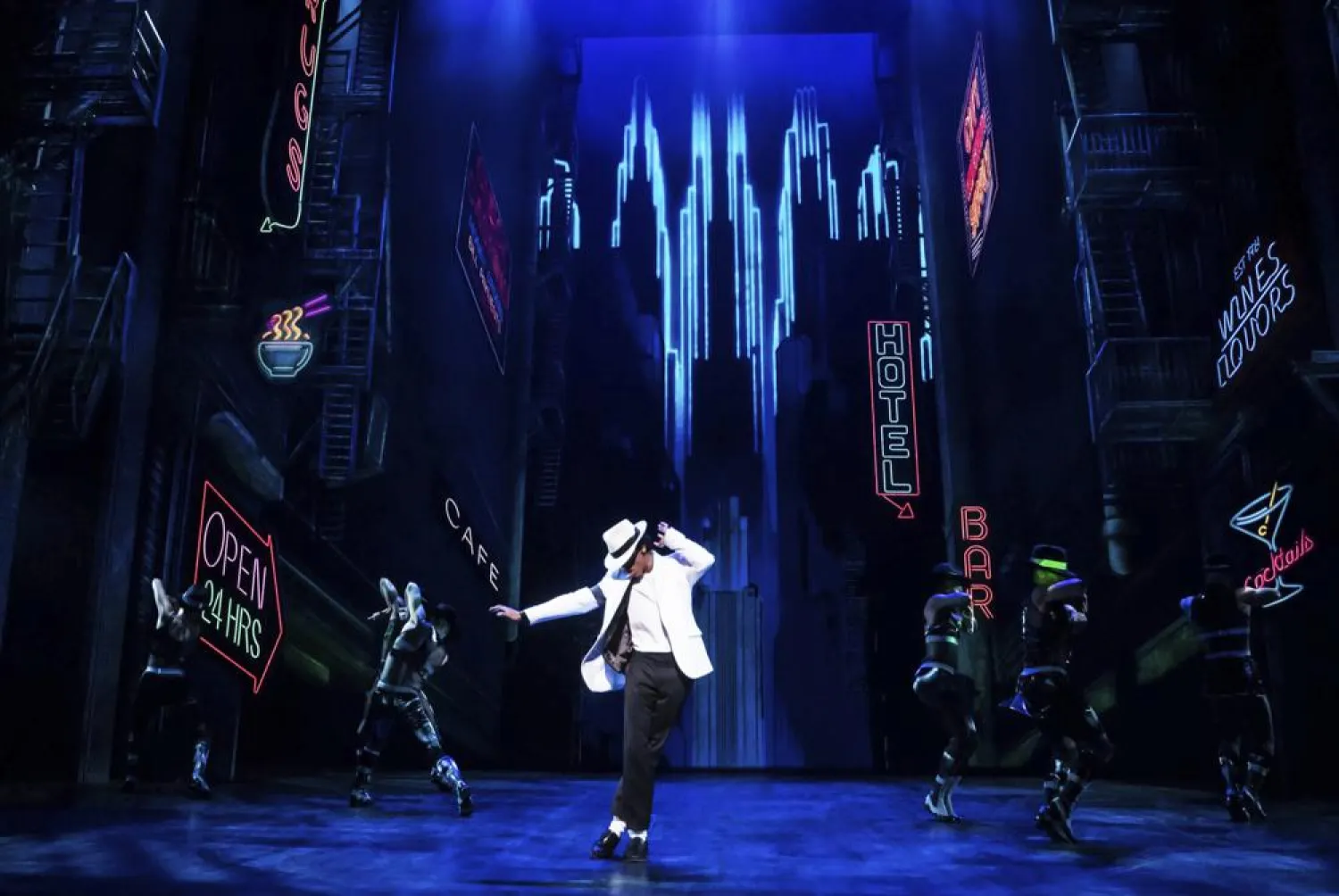The new, splashy Broadway musical about Michael Jackson begins with the King of Pop plotting an ambitious tour to reclaim his throne. He’s facing financial ruin, swirling rumors and an addiction to pain pills. You’d think it was 2009, just weeks before his death. That’s the logical place to start. But logic has little to do with “MJ.”
It’s actually 1992 when Jackson kicks off the show by entering a Los Angeles rehearsal studio that serves as the jukebox musical’s main set. He’s putting the final touches on the “Dangerous” tour and drilling his exhausted dancers: “Do it until we get it clean.”
We will soon melt back in time — back to the Jackson 5, “Off the Wall” and “Thriller” — but never forward. Why 1992? Jackson will be on the “Dangerous” tour a year later when he is first formally accused of molestation, an allegation that will be settled. The Michael on Broadway will never face that, forever shielded.
That’s just one very large disingenuous note in an altogether baffling production that opened Tuesday at the Neil Simon Theatre. Like Jackson himself, there are moments of sheer genius punctuated by head-scratching weirdness.
The portrait offered of Jackson is of a perfectionist, driven by his love of music and to give his fans the best possible experience, no matter the cost. He’s misunderstood and a little quirky — he shoots a squirt gun during a business meeting — but harmless. Not predatory, but prey. The only thing he’s guilty of is caring too much for his charities. “The bigger it is, the more we can give back,” he says.
It’s curiously muted, shallow writing from playwright Lynn Nottage, someone who previously painted a harrowing picture of violent life in the midst of an African civil war with “Ruined.” The approval of the Michael Jackson estate — prominently trumpeted here — looms large.
Nottage and director and choreographer Christopher Wheeldon have one of the greatest music catalogues in the world and yet don’t seem to know how to handle it. Some pivotal songs — like “For the Love of Money” by The O’Jays — aren’t by Jackson at all. And a large bulk of Jackson’s songs used — including “Earth Song,” “Stranger in Moscow,” “Price of Fame” and “They Don’t Care About Us” — were released after 1992. You can’t have it both ways.
Even so, nothing should take away from a tireless, fully-committed Myles Frost, who plays Jackson with a high, whispery voice, a Lady Diana-like coquettishness and a fierce embrace of Jackson’s iconic dancing and singing style, right down to the rhythmic breathing and swiveling head. He Moonwalks insanely well.
The framing technique for this bio is a fictional MTV film crew that has gotten access to capture Jackson’s tour prep and their softball questions are used to coax out Jackson’s interior life, like “Do you ever get tired of the hype?” and “Forty-one million records and still counting. Eight Grammys. That’s gotta feel good.”
But even as it uses journalism to its own ends, the script clearly detests reporters. Act I ends with Jackson at a press conference hunted as a cabal of tabloid hacks dressed like extras from “The Matrix” crush him, even suggesting he is their puppet. It’s argued media pressure made him push himself, but we also learn that was instilled years ago by dad.
There are moments that reveal a potentially different show, one less blunt, more stylish and impressionistic. Act II opens with a sort of stripped-down dream sequence of dance, as if Wheeldon had finally wrested the project for himself. It breaks the fourth wall and is tonally like nothing else in the show.
In it, Jackson comes out alone and puts on a black sequined jacket, black fedora and single white glove, studded with rhinestones. He dances and sings “Billie Jean” and then soon identifies three key inspirations — Fred Astaire, The Nicholas Brothers and Bob Fosse — and then dances with each of them, showing how his style is in their debt (like Fosse’s bowler adopted as MJ’s fedora). It’s a brilliant bit of musical stagecraft.
Other highpoints include “I’ll Be There” used as duet between a young Jackson (one of two young men playing Michael from 8-10 is a dynamite Christian Wilson) and his mom (a terrific Ayana George, stealing every scene), which then nicely switches to her singing with the adult Michael. Berry Gordy and Michael also have a good duet, the repurposed “You Can’t Win” from “The Wiz.”
Clunkers include an off-the-wall fantasy sequence using “Human Nature” as Jackson takes the MTV reporter to the Hollywood sign — “the way you imagine the world is so beautiful,” she sighs — and a reprise of “Thriller” that seems to imply Jackson’s dad is a demon before his son is attacked by more than a dozen Jackson zombies. What’s being explained is unclear.
Nottage only obliquely nods to the coming storms: Jackson popping Demerol and unsettling allegations, including about a family he wants to bring on tour. “There’s been some dark struggles... Things I can’t...” Jackson stammers.
There are no bad guys in “MJ.” Even Jackson’s father, a demanding taskmaster who slaps young Michael and repeatedly cheats on his mom, emerges redeemed. “It may not feel like love but it is,” his mom explains.
It’s all very weird, a sloppy yet very calculated piece of image branding. But to quote the man himself in “Scream”: “I’m tired of you tellin’/The story your way/You’re causin’ confusion/You think it’s OK.”









